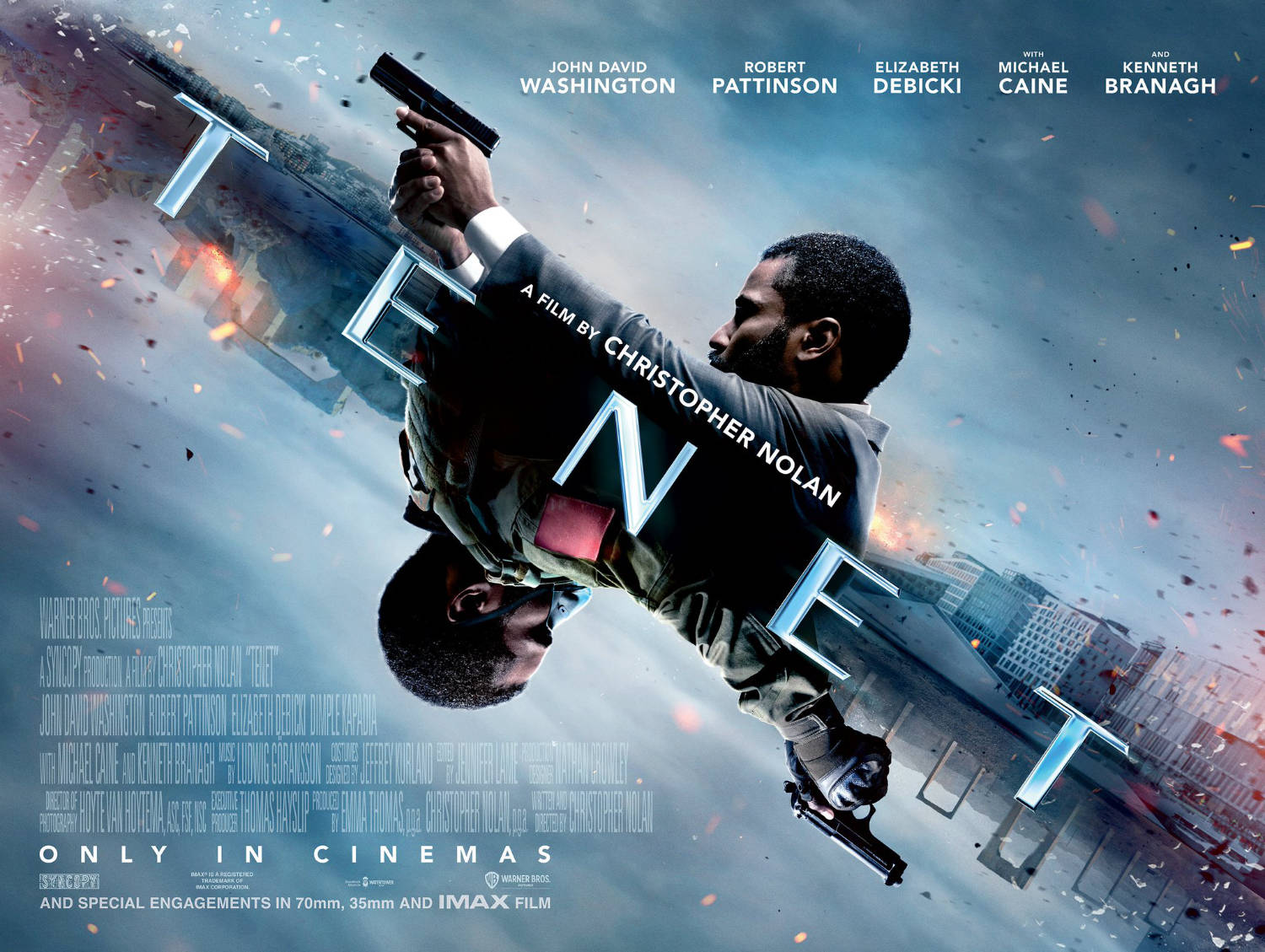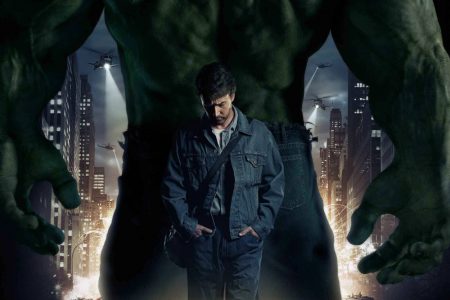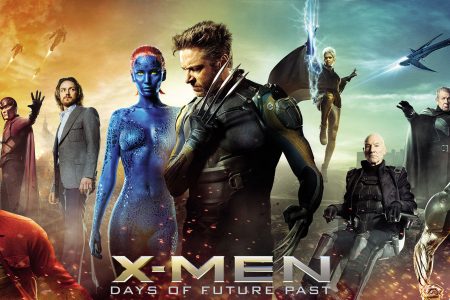The reviews for Tenet might have been divisive, but I think one thing could be agreed by all: it would have been great to watch this film in the cinema. The year of the pandemic, coupled with the terrible ‘delayed/stop–start/open up for the economy/lockdown again because of another wave’ response by the atrocious Tory government, was bad for many people and industries, with the arts in particular not getting any support during lockdown. Cinemas tried to cope but most studios were holding back their big releases so, even though most cinemas had excellent COVID responses in place, people weren’t going out to watch films. Tenet was released in the hope of changing things, but it wasn’t to be.
We have a modest-sized widescreen television, but streaming it as a rental recently wasn’t the same as it would have been to experience the action and spectacle on a cinema screen with surround sound. Christopher Nolan knows how to make an action blockbuster with brains, and he’s a huge advocate for cinemas in a world where streaming has overtaken the way we consume entertainment, so it felt wrong watching the movie at home for the first time. With that in mind, here are some thoughts on the film.
The first thing that has to be mentioned is that Nolan, while a filmmaker of talent and vision, does not serve female characters very well. Many of his previous films have relied on the Dead Wife trope, although that’s not used here, and there are several female characters in the film, but they are ciphers. Clémence Poésy is a scientist who briefly advises the Protagonist (John David Washington); Dimple Kapadia is arms dealer but who only interacts with the Protagonist; Elizabeth Debicki is the estranged wife of the villain, Sator (Kenneth Brannagh), but is mostly a damsel in distress with the defining feature of wanting to take care of her son. This is not passing the Bechdel Test and gets in the way of completely enjoying the film because of the negligent attitude towards women.
The second negative to mention is that Nolan’s attitude towards sound design and dialogue continues to annoy. Either what your characters are saying is important to the film (particularly in a film with a difficult-to-grasp innovative concept that requires a lot of expository dialogue) or it isn’t, but muffling the sound to the point of detriment of enjoyment is extremely frustrating. If you are streaming, I highly recommend viewing Nolan films with the subtitles on so you can enjoy the experience of watching the film without worrying about whether you can hear what the actors are saying.
With these two significant negatives in mind, I still enjoyed the overall experience of the film because it is a Nolan blockbuster: exciting action pieces with some interesting characters set in a world of shady dealings based around an intriguing premise. In this case, the premise is ‘inversion’ – ‘technology that can reverse an object’s entropy’ – which is definitely not time travel, but does have items and people who can move different in time, which leads to some of the most dazzling set pieces, and sets up proceedings. Washington (who is cool AF throughout the film) is a superspy – this is essentially another Nolan Bond film – who is inducted into a secret organisation, Tenet, and set to investigate bullets that can move backwards in time and to try to prevent something worse than World War III. This leads him to the Bond villain, I mean Russian oligarch, Sator (Brannagh playing another Russian bad guy after Jack Ryan: Shadow Recruit – is he being typecast?) and Debicki, as well as going on missions with Robert Pattinson’s Neil. I won’t give away more details because half the fun is in working things out along the way.
As with Nolan’s films, there is a lot to dissect and discuss – I enjoyed listening to the Empire Podcast Spoiler Special to discover the connection to the Sator Square, a two-dimensional word square containing the five-word Latin palindrome Sator Arepo Tenet Opera Rotas, words which all appear in the film. The podcast also discusses how the events in the film are themselves palindromic as they move backwards and forwards in the time space of the action, which brings a smile to my face just thinking about what that means in the context of the film. The concept of time plays a part in many Nolan films (Memento, Interstellar, Inception) and this iteration is particularly intriguing and satisfying, both for the action sequences that involve inversion/normal time and the effect it has on the Protagonist in his relationships with characters in the film. Nolan’s dedication to in-camera action is exhilarating as always, from the opening sequence in the opera, to the raid on a freeport and the actual crashing of a jet plane into a building, and the car sequences that involve inversion as well. As I said at the start, the film must have looked great on the big screen.
As mentioned, I had issues with the film which detracted from the overall experience, but it is still a very good film with much to offer in the way of visual spectacle as well as good actors talking gobbledygook (because it’s a Nolan film, Michael Caine turns up for a small role; Pattinson and Washington worked particularly good together, which provides hope for Pattinson’s Batman, and I hope Washington continues on his stratospheric start after his other excellent turn in BlacKkKlansman), and I was left with a feeling of satisfaction after watching the denouement with its ‘temporal pincer movement’. I hope Nolan gets to keep making his non-franchise action blockbusters, but also I hope that he starts doing better by women in his movies.
Rating: DAVE




